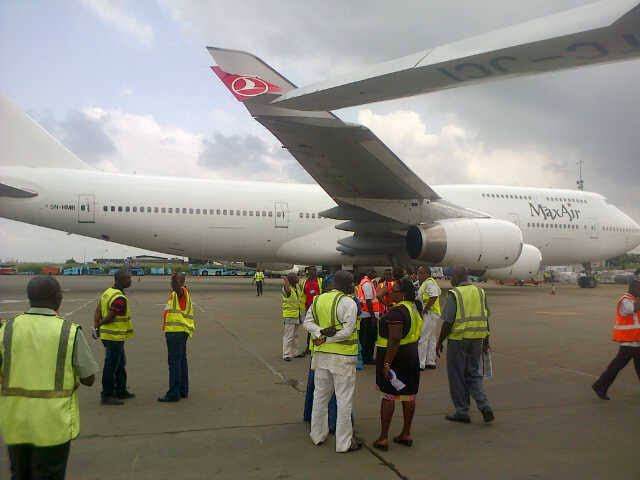The Association of Nigerian Aviation Professionals (ANAP) has warned it would continue to kick against the plan to concession some major airports across the country by the Federal Government.
ANAP also raised the alarm over the existence of numerous airstrips in the country, warning that safety and security could not be guaranteed in some of them.
Mr Abdulrazaq Saidu, the General Secretary, ANAP, told newsmen on Sunday in Lagos that the insecurity in the country had made the concession plan unfavourable and dangerous.
The newly reappointed Minister of Aviation, Sen. Hadi Sirika, had been pushing for the concession of the Abuja, Lagos, Kano and Port Harcourt Airports
The government had appointed Transaction Advisers to mid-wife the process aimed at ensuring that the airports operate optimally and were at par with their contemporaries across the globe.
However, Saidu noted that if government scaled through with the proposal, several direct staff of the Federal Airports Authority of Nigeria (FAAN) would lose their jobs.
He said thousands of indirect workers would also be affected, stressing that concession would negate the policy of the government to create more jobs for qualified Nigerians.
Saidu said : “We are saying capital no to the planned concession of our airports.
“This is simple. We have security challenges in the country and we can’t leave our security in the hands of individuals or private organisations that we don’t trust or know their backgrounds.
“Recently, somebody beat the security agencies to gain access to one of the aircraft parked at the Lagos Airport.
” If the government concessions the major gateways, it will be a haven for drug peddlers, money launderers and importation of unapproved ammunitions. We will be sitting on a keg of gunpowder.”
He also drew the government’s attention to the operating mode of some airstrips in the country, without the presence of FAAN Aviation Security (AVSEC).
” External aggression can come from such airstrips,” Saidu said.
The union scribe, however, expressed his support to government’s plans to birth a new national carrier for Nigeria after the liquidation of the former, the Nigeria Airways Limited, in 2004.
He urged the government to make the operations of the airline transparent to stakeholders in the industry to ensure its sustenance.
He warned that the composition of a new national carrier in the mode of Nigeria Airways would fail, noting that it must be driven by core investors and individuals in order to succeed.




